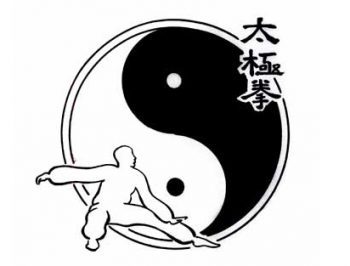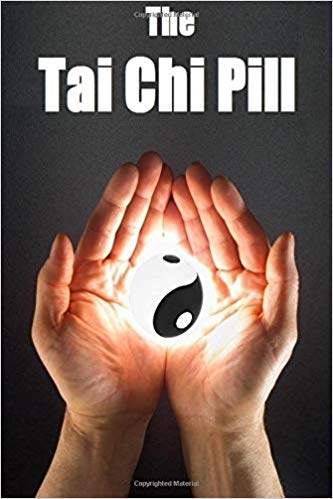Contributing writer for Wake Up World
“Tai Chi makes the weak strong and the strong gentle; the old person youthful and the young person wise.”
Tai Chi is a powerful ancient practice that keeps the body healthy and strong, and yet most anyone can do it, regardless of existing physical conditions or limitations. Helping to integrate the mind, spirit and body, there really is no other practice quite like it; it is unlike anything and yet, it compliments everything.
Tai Chi continues to amaze me, there are seemingly endless layers to Tai Chi. I like to compare it to a deep well where, the deeper you go, the more layers and precious substance you find.
Tai Chi: The “Grand Ultimate”
Tai Chi means the Grand Ultimate and refers to what in the West is called The Yin Yang symbol. In China it is not the Yin Yang it is the Tai Ji, containing components Yin and Yang of course. The Grand Ultimate reveals a philosophy of mutually dependent contrasting forces of Yin and Yang and physically practiced and expressed through the moves of Tai Chi Chuan. In Chinese conceptualization the Yin and Yang are the main components in the Tai Ji symbol. Tai Chi Chuan is the Grand Ultimate Long Form of self-development, of individuation.
Tai Chi, the world’s most widely practiced martial art, is the “grand ultimate” martial art — but its grand ultimate quality goes beyond its practice as a martial art. Tai Chi is the most efficient form of self-development in total; for healing, for strengthening, for grounding, for cleansing your energy field, for consciousness expansion, and for potentiation. A powerful combination of meditating arts, exercises, movement arts, and healing arts, Tai Chi is the grand ultimate broad form of individuation.
Some would argue that Tai Chi is undeserving of its “grand ultimate” status. Tai Chi is not the best at building strength but it is comparable to lifting weights; it is not the best at developing flexibility but it is comparable to yoga; it is not the best at healing but yields comparable results to modern medicine; it is not the best exercise for cardiovascular health but it is comparable to jogging; it is not the best form of meditation but it is highly efficient at developing and maintaining a meditative mind state; it is not the best way to expand your mind but it certainly expands physical and mental capacity.
Tai Chi is the grand ultimate practice for individuation not because it is the best martial art, or the best consciousness practice, but because it betters our entirety without focusing on any particular avenue – and as science continues to prove, provides wide ranging benefits, from enhanced consciousness to cardiovascular health.
Occasionally I am lucky enough to practice other Tai Chi, martial arts and Yoga modalities with which I am not familiar, and I always feel humbled doing so. Sometimes I am confused – and I love it! I have learned to embrace confusion and the humbling experience of learning new movements as a tangible way to expand my physical and mental potential. The confusion also reminds me of when I first learned Tai Chi — the confusing fun! Embrace it. Through this confusion, we experience self-doubt, and from overcoming our initial lack of capability comes empowerment, expansion and understanding.
Consider the following expressions as they apply to practicing Tai Chi, and to learning anything for that matter.
“No doubt, no awakening. Little doubt, little awakening. No doubt, no awakening.” — Zen expression
“If you know the enemy and know yourself, you need not fear the result of a hundred battles. If you know yourself but not the enemy, for every victory gained you will also suffer a defeat. If you know neither the enemy nor yourself, you will succumb in every battle.” — Sun Tzu, The Art of War
When we put these two concepts together, we can see that knowing ourselves is not mutually exclusive to developing ourselves but that each go hand in hand. You cannot know yourself without developing yourself — and learning is the best way to do so, in balance and for balance.
Sadly, many people would rather not learn, would rather not face confusion, would rather not leave their comfort zones, and would rather not admit to themselves or others that they were not right, let alone wrong. To overcome these self-imposed limitations, we must realize that doubting ideas and even our own capabilities is a healthy part of development. We must become novices, like children, in order to learn new skills and have experiences that expand us; and we must realize that doubt, not judgment and scorn (of ourselves or others) is part of expansion. While it may seem counterintuitive, being confused and doubtful is an inherent part of the development process — particularly one like Tai Chi, which incorporates all aspects of all arenas.
“The master has failed more times than the beginner has even tried.” — Stephen McCranie
Once you realize how beneficial confusion (and the palatable frustration it can create) can be, you begin to seek it out. The very thing that frustrates would-be Tai Chi practitioners is the very thing that practitioners seek out after learning to practice a form without shadowing and with immersion into the Tai Chi flow.
“The successful warrior is the average man, with laser-like focus.” — Bruce Lee
Peace on earth, for real though.
The Tai Chi Pill
The Tai Chi Pill is a Tai Chi lesson that will help you to help yourself. It contains principles, practices and philosophy to enable you to change patterns and enhance the quality of your being.
The Tai Chi pill is an easy to swallow Tai Chi lesson for beginners, with practices and principles which enable you to take Tai Chi into your world without learning a long form. The Tai Chi Pill also contains philosophy that long time practitioners will find applicable to their own practice.
“There is no wrong way to practice Tai Chi, there are only more correct and more refined ways.”
The Tai Chi Pill is available on Amazon.
About the author:
Activist, author and Tai Chi teacher Ethan Indigo Smith was born on a farm in Maine and lived in Manhattan for a number of years before migrating west to Mendocino, California. Ethan’s work is both deeply connected and extremely insightful, blending philosophy, politics, activism, spirituality, meditation and a unique sense of humor.
You can connect with Ethan on Facebook, check out his author page on Amazon, or visit his websites, Geometry Of Energy and Meditation 108, where Ethan offers lessons on individuation, meditation, the conceptualization of energy, and the metaphysical significance of 108.
Ethan’s books include:
- The Geometry of Energy: How to Meditate: Simple and profound, this book offers an empowering four-step meditation, focused through the sacred dimensions of geometry.
- The Little Green Book of Revolution an inspirational book based on ideas of peaceful revolution, historical activism and caring for the Earth like Native Americans.
- Meditation and Geometry for The Youth: A short and sweet book to introduce young people to meditation and sacred geometry, in a simple format for the youth and youthful alike.
- 108 Steps to Be In The Zone, a set of 108 meditative practices for self discovery and individual betterment, including techniques to develop balance, transmute sexual energy.
Recommended articles by Ethan Indigo Smith:
- Tibetan Rites of Rejuvenation: a Guide to Meditation and Breath
- Understanding Ascension: The Geometry of Energy
- The Mandala: The Sacred Geometry of Meditation
- The Common Origins of Religions and Theology
- Aum Mani Padme Hum: The Integration of Duality and Polarity
- Guardians of the Earth Unite! American Indian Prophecy, The Medicine Wheel, and The Four Sacred Directions
- The Spiritual Golden Rule
- Meditation Comprehension for the Youth
- Meditation 108: A Guide to Meditating for the Infant Practitioner
- Walls and Wars – Overcoming the Instincts of Hive Consciousness

If you've ever found value in our articles, we'd greatly appreciate your support by purchasing Mindful Meditation Techniques for Kids - A Practical Guide for Adults to Empower Kids with the Gift of Inner Peace and Resilience for Life.
In the spirit of mindfulness, we encourage you to choose the paperback version. Delve into its pages away from screen glare and notifications, allowing yourself to fully immerse in the transformative practices within. The physical book enriches the learning process and serves as a tangible commitment to mindfulness, easily shared among family and friends.
Over the past few years, Wake Up World has faced significant online censorship, impacting our financial ability to stay online. Instead of soliciting donations, we're exploring win-win solutions with our readers to remain financially viable. Moving into book publishing, we hope to secure ongoing funds to continue our mission. With over 8,500 articles published in the past 13 years, we are committed to keeping our content free and accessible to everyone, without resorting to a paywall.










